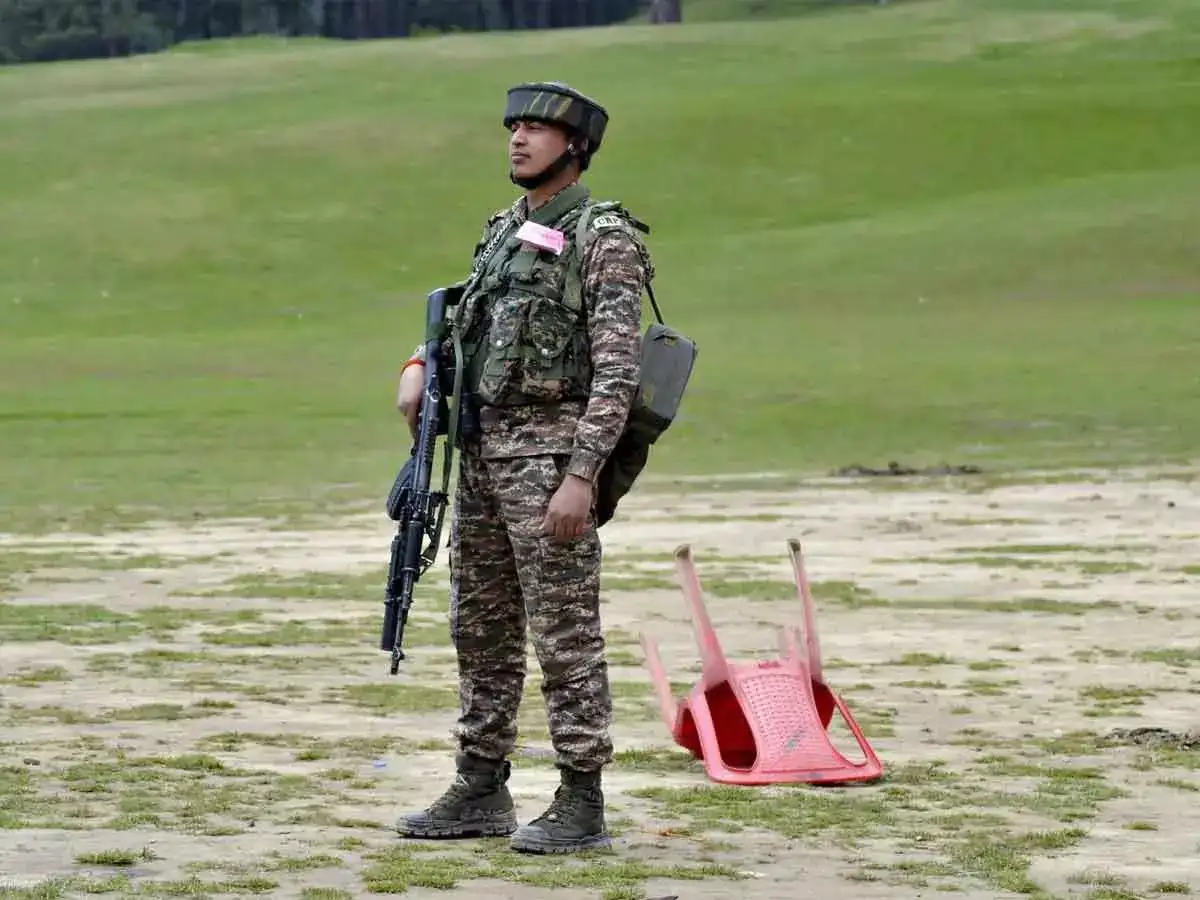South Asia has long been a theater of geopolitical tension, where India’s relationship with Pakistan has frequently taken a center stage in global security discourse. Since 2019, India’s increasing assertive posturing coupled with the provocative incidents like the Pulwama – Balakot crisis has drawn significant global attention. However, many suggest that these crises are not mere episodes of escalation but rather components of a recurring pattern involving false flag operations attributed to India, with certain political objectives. False flag operations are political or military actions designed to deceptively attribute responsibility to another actor. In case of India, it is a recurring element in its strategic approach towards Pakistan with examples like the Mumbai attack of 2008, Pathankot attack in 2016, subsequently Uri attack the same year and Pulwama in 2019. With recent attack in Pahalgam, India has been quick to attribute responsibility to Pakistan for such incident despite limited or dubious evidence.
Coincidentally, the Pahalgam attack happened at the time when US Vice President JD Vance is on visit to India to strengthen Indo-US relations and advance bilateral trade negotiations. However, it raises important questions regarding the timing and beneficiary of the incident. Periodically, a pattern of such events in the past can be noticed, where India has victimized itself of a cross-border terrorism. For example, the Pulwama attack in February 2019 occurred just two months before India’s general elections. The Pulwama incident became a rallying point for Bharatiya Janata Party (BJP), led by Prime Minister Narendra Modi, featuring anti-Pakistan rhetoric during the election campaigns. The subsequent Balakot airstrikes further reinforced Modi’s image as a strong and decisive leader, which ultimately resulted in the electoral victory for BJP. During the crises, the leadership of India behaved in highly irrational manner. Following the release of the captured Indian Wing Commander Abhinandan in the Operation Swift Retort, PM Modi made a provocative statement during an election campaign in Gujrat, stating that had the pilot not been returned, the situation could have escalated into a “qatal ki raat” (a night of slaughter). Such a statement from a sitting Prime Minister reflects irrationality, irresponsibility, and war mongering behavior. It was not for the first time in Pulwama that India has strategically leveraged its narrative “victim of terrorism.” It has systematically maligned Pakistan by attributing the incidents to the so-called Pakistan-based militant groups, which evolved into a key element of India’s diplomatic approach, framing Pakistan as state sponsor of terrorism.
The Pahalgam attack is not an isolated incident but part of an observable pattern of strategic manipulation. From Pakistan’s perspective, the timing cannot be ignored, when the country is actively pursuing to strengthen its economy and international partnerships, with particular focus on bilateral relationships with the United States. Amid the ongoing US-China trade war, Pakistan opens its minerals and mining sector to attract foreign direct investment and implement reforms to attract international businesses. As the race to secure steady supply chain intensifies, US recognizes Pakistan’s mineral wealth as a vital component to its electronic and defense industries. Pakistan’s economy is dependent on agricultural sector; however, it is diversifying its means of revenue. The timing of the incident is also extremely critical because the terrorist attack happened merely a week after Pakistan’s Army Chief General Asim Munir made a statement regarding Kashmir and Balochis tan, while addressing government officials and overseas Pakistanis on security matters. In which he stated “Together, we are sending a clear message: whoever stands in the way of Pakistan’s progress will be removed,” Pakistan already victim of terrorism is determined to overcome this menace through decisive action, socio–economic reforms, and regional cooperation to ensure peace and stability as reflected in the Operation Azm-e-Istehkam. But following the Pahalgam terror attack, the Indian media swiftly reported, blaming Pakistan for the attacks, while referring to Army Chief’s statements, demonstrating a persistent tradition of making unsubstantiated accusations.
Another surprising question remains regarding India’s coercive diplomatic measure taken in the Cabinet Commitee on Security. Following the Pahalgam attack, the provocative measures announced by India including the Suspension of Indus Water Treaty, Attari border shutdown, Pakistani defense staff persona non-grata and visa cancellation under the SAARC visa exemption scheme represents a concerning overreaction and escalation of tensions. Foreign Secretary Shri Vikram Misri citing cross-border linkages appears to be a convenient pretext for actions that undermine regional stability. Most Concerning of all is the revocation of the long-standing Indus Water Treaty of 1960 which endured several wars and crises. The Indus Water Treaty is critical to Pakistan’s agriculture, as it guarantees access to the water from the Indus River system, which is the backbone of the country’s farming sector. Pakistan’s agriculture sector contributes 19-20% to the GDP and provides jobs to 40% of workers although irrigation supplies water to 90% of cultivated lands. The Indus Basin Irrigation System in Pakistan functions on a steady flow of water from western rivers that are allocated through the treaty from Indus, Jhelum, and Chenab. The western rivers of Indus and its tributaries provide water essential for growing both staple and cash crops.
India’s repeated use of crises events followed by swift attribution to Pakistan and hasten decision signal towards India’s pre-planning of the false flag operation. These incidents surfacing at politically or diplomatically sensitive moments allow India to play the victim card while maligning Pakistan on a global stage. On the contrary, there is substantial evidence of India backing terrorist organizations Like BLA (Baloch Liberation Front) and TTP (Tehreek-e-Taliban Pakistan) by providing financial and logistic support through intelligence networks in Afghanistan, aiming to destabilize Pakistan. What is more concerning is that how India’s tactics have crossed the notion of narrative building to the weaponization of the essential resources like water. As against India’s adventurous attitude, Pakistan has in the past shown tremendous restrain and responsible behavior by making serious efforts to normalize the volatile situations as a result of the so-called surgical strikes insides Pakistan during 2019 in Balakot. The situation might have taken a dangerous turn, had Pakistan not exhibited responsible attitude. Instead of hastily responding to India’s immature and provocative acts, Pakistan not only released Wing Commander Abhinandan as a goodwill gesture but also went for peaceful resolution of the crisis. However, instead of learning from the past follies, India is once again showing irrational behavior by inflaming the unfortunate terrorist attack in Pahalgam and implicating Pakistan without finding any reason or evidence.
Table of Contents
ToggleMuhammad Yousuf Habib
- Muhammad Yousuf Habib














